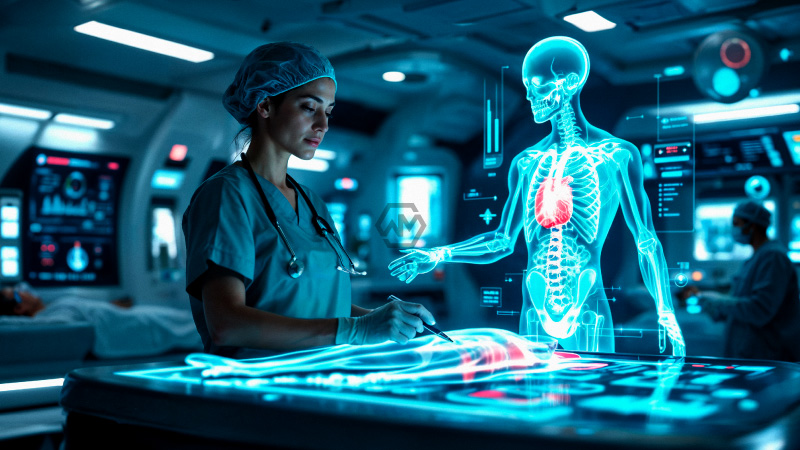- AI is being used to automate nursing tasks, aiming to reduce burnout and staffing shortages.
- Nurses argue AI can override their expertise, leading to potential patient safety risks.
- False alarms and rigid protocols raise concerns about AI’s role in medical decision-making.
Artificial intelligence is rapidly integrating into hospitals, promising efficiency and cost-cutting solutions. However, nurses and unions fear that AI-driven automation is undermining their professional judgment, potentially leading to misdiagnoses and inadequate care.
AI’s reliance on data-driven decision-making often lacks the nuanced understanding that human professionals bring to patient care. Instances of false alarms, like flagging a routine bodily function as an emergency, highlight the flaws in AI systems.
The AI Dilemma in Healthcare: Support or Replacement
The integration of AI in hospitals has raised ethical and practical concerns, especially among nurses. While healthcare administrators tout AI’s ability to streamline processes and reduce costs, frontline workers argue that it often forces them to follow rigid, one-size-fits-all protocols. AI’s efficiency comes at the risk of eroding the critical thinking that defines patient care.
A key concern is the pressure on nurses to comply with AI-generated recommendations, even when their professional judgment suggests otherwise. In some cases, ignoring AI advice has led to conflicts with supervisors, as seen in emergency room incidents where incorrect AI alerts nearly compromised patient treatment.
Another challenge is AI’s tendency to generate excessive alerts, many of which turn out to be false positives. Nurses report spending valuable time responding to unnecessary alarms, diverting attention from actual emergencies. The technology’s inability to differentiate between minor irregularities and life-threatening conditions raises serious questions about its reliability.
Despite these challenges, AI has potential as a supporting tool rather than a replacement for human expertise. Used appropriately, AI can help manage workloads and improve patient monitoring. However, ensuring that AI serves as an assistant rather than an authority is essential to maintaining quality patient care.
The future of AI in nursing depends on finding the right balance between automation and human expertise. While AI can assist in managing workloads, it must not override critical medical decision-making. Safeguards are necessary to ensure that technology enhances—rather than diminishes—patient care.
“The saddest aspect of life right now is that science gathers knowledge faster than society gathers wisdom.” – Isaac Asimov



